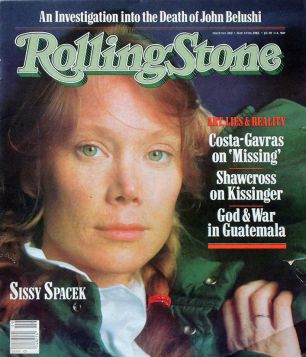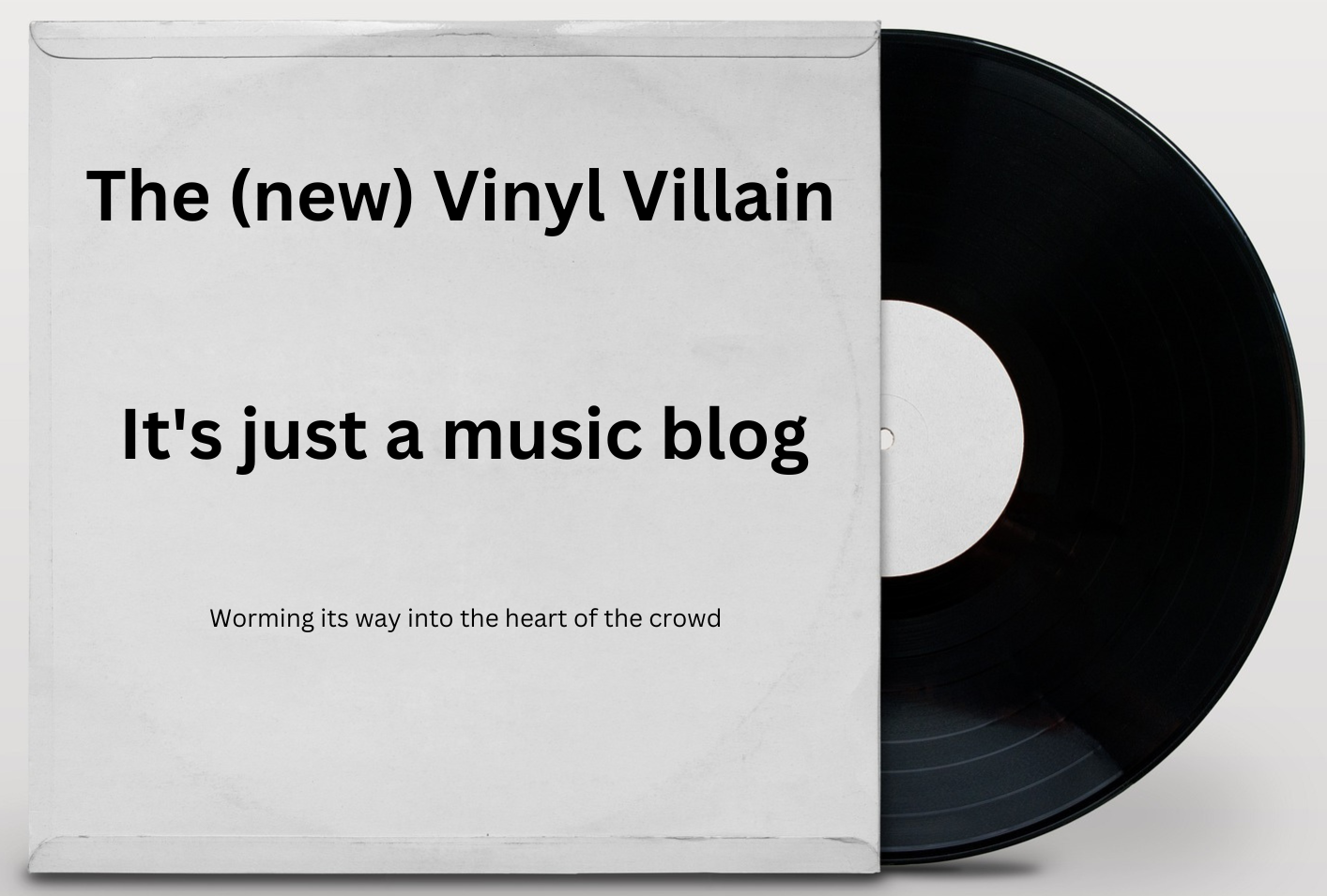
Album : Various/Various
Review : Rolling Stone, 13 May 1982
Author : David Fricke
To English popmusic fans, there is nothing like a good six-month fad. The punk explosion, the warmed-over mods, the ska craze and the psychedelic revival–don’t look now, but you just missed the New Romantics–have come and gone (and in some cases, come again) with such confounding rapidity that it is hard to take most of them any more seriously than Hula Hoops or edible underwear.
The country’s latest rage is synthesizer music. Every hip, young Tom, Dick and Johnny B. Goode has traded in his guitar for a synthesizer and rhythm box, buying into future cool by applying the latest keyboard and computer appliances to the brisk melodic cheeriness of commercial pop and the bubbly beat of off-white funk. But far from bowing down to the great god of automation or passing off their microchip bubblegum musings on sex and energy as the stuff of a brave new world, these synthesizer bands have bestowed an almost mock-human quality upon their hardware. The beeping, farting and whooshing of the keyboards, combined with the psycho-Sinatra cabaret croon of the singers (Soft Cell’s Marc Almond and Orchestral Manoeuvres in the Dark’s Andy McCluskey, take a bow), creates a man-machine tension channeled into the vigorous dance beat of many of these songs. And by dancing, that does not mean the March of the Androids but no-holds-barred Soul Train swing.
The chart success of these digital dandies and their synthesizer pop – all four of the above LPs made the U.K. Top Five and are faring surprisingly well here – is somewhat out of proportion to their artistic worth. These are, after all, only pop songs in transistor drag. But if singing the same old song with newfangled noise is no great leap, selling the public on a package of postpunk do-it-yourself ingenuity, easy-to-play technology and Top Forty classicism certainly is.
The Human League is a perfect case in point. In the four years since the group’s first single, a home-recorded slice of angry young electronic New Wave called “Being Boiled,” the original quartet split in half and evolved into a six-piece, circa-2001 Abba. Singer Phil Oakey‘s lusty saloon styling is now lightly sugared with the twee harmonies of Joanne Catherall and Susanne Sulley. Such songs as the Euro-fizzy “Open Your Heart” and the bright motorfunk exercise “Love Action” (both on Dare) are delightful, swinging singles free of sci-fi pretensions and uncluttered by art-school cleverness. Producer Martin Rushent‘s warm widescreen production also takes the edge off the severe chill that typified the League’s earlier import albums.
Yet, more important, the League itself now strikes an appealing balance between modern technique and tuneful charm, epitomized by the hit single “Don’t You Want Me.” Alternating between a gray doomsday riff and a smart samba strut, the song is a tasty white-soul layer cake of competing melody and harmony lines whose orchestral possibilities are pared down to a sleek, glassy arrangement by the metallic breeze and regimented beat of the synthesizers. With all the knobs and buttons at their disposal, the Human League still goes for the hook. And with eight other songs as artfully grabby as “Don’t You Want Me,” Dare keeps reelin’ ’em in.
The problem with Orchestral Manoeuvres in the Dark is that they want to have their art and eat it, too. The awkward mix of dreamy romanticism and spatial, Pink Floyd-ian abstractions on Architecture and Morality, OMD’s second American album, suggests that Andy McCluskey and Paul Humphreys are acutely embarrassed by their ability to pen seductive moonlight sonatas like “Souvenir” and the eerie Parisian waltz “Joan of Arc (Maid of Orleans).” Why else gussy up the LP with ponderous music of the spheres, as in the title track’s construction-site rattle and the overlong “Sealand,” a nuclear beach concerto of drawn-out synthesizer drones? They even sabotage the album’s one decent party track, “Georgia,” with carnival organ and holy choir sound effects. Too much sincerity and not enough spunk on Architecture and Morality make for attractive but dull fare.
The Soft Cell twosome of Marc Almond and David Ball walks on a much wilder side, bringing the brainy bop of OMD down to a lurid red-light-district level on their debut album, Non-Stop Erotic Cabaret. Their hit single, “Tainted Love” (included here), neatly captured Soft Cell’s fetish for R&B; camp; the twelve-inch single even segued into a heavy-breathing version of the Supremes‘ “Where Did Our Love Go.”
Not surprisingly, then, the best tracks on Non-Stop Erotic Cabaret–“Frustration,” “Sex Dwarf,” “Secret Life” – bump and grind with vibrant, tawdry soul. Ball, employing a limited arsenal of synthesized keyboard effects, tarts up the meaty funk beat with multiple rhythm figures and steamy extended chords. Together, these complement singer-lyricist Almond’s passion for sexual deviation (“Sex Dwarf,” “Entertain Me”) and rather vampiric fear of open day-light (“Memories of the night before/Out in clubland having fun/And now I’m hiding from the sun,” from “Bedsitter”).
Compared to Soft Cell’s smutty pop, Depeche Mode‘s Speak and Spell is strictly PG-rated fluff. A group of fresh-faced, suburban lads from Britain, they have neither the ambition of Orchestral Manoeuvres in the Dark nor the overt commercial allure of the Human League. They simply drift aimlessly between the two, occasionally hitting a disco bull’s-eye with chirpy dance tracks like “Dreaming of Me” and “Just Can’t Get Enough.” Too often the synthesizers lock into dead-end grooves, and the group’s boyish caroling is anonymous at best.
There’s plenty more where all this synthesized Dream Whip came from: e.g., Simple Minds, Duran Duran, Heaven 17, the Far East fantasies of the group Japan. They’re not all completely synth, but they certainly sing the body electric. Still, the temptation is to dismiss English synth-pop as the chart’s flavor of the month. For all their undeniable pop attractions and the genuine innovative potential of electro-dominated rock, these bands so far have only bent the rules, not broken them. If this batch of records is any indication, the revolution will not be synthesized.
mp3 : The Human League – Open Your Heart
mp3 : OMD – Georgia
mp3 : Soft Cell – Secret Life
mp3 : Depeche Mode – Dreaming of Me
JC adds : “The chart success of these digital dandies and their synthesizer pop is somewhat out of proportion to their artistic worth.” Just fuck off will you? It’s dicks like you that give music writers/journalists a bad name.
Happy New Year. It’s great to start it off grumpy.

Seriously, fuck David Fricke. But happy new year to JC and all the fine folks checking in at TVV! 2020 is going to be awesome, my friends!
What a knob . Anyway – happy new year JC and here’s to 12 more months of more insightful musical musings that put Rolling Stone to shame
So what music does he like then? Slagging off architecture and morality – one of the finest albums of the 80’s – makes me wonder who he thought was better??
Fun to get old school grumpy in 2020!
Calling The Human League a “circa-2001 Abba” is quite funny though.
Fricke was a bit of a dick wasn’t he?
Happy New year JC.
Ha. Happy New Year, JC. Keep raging against the machine.
Happy new year you guys and girls.
Swc
I guess Simple Minds thought he represented the thoughts of music fans as they pretty much gave up their synthesizers for good old stadium rock soon after this (well a couple of tears anyway)